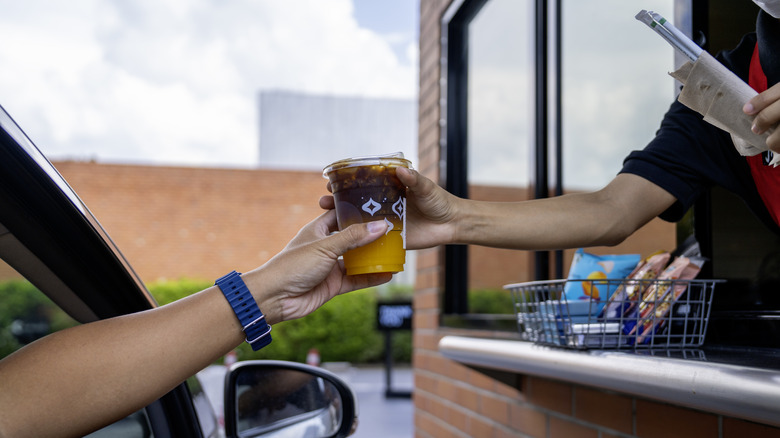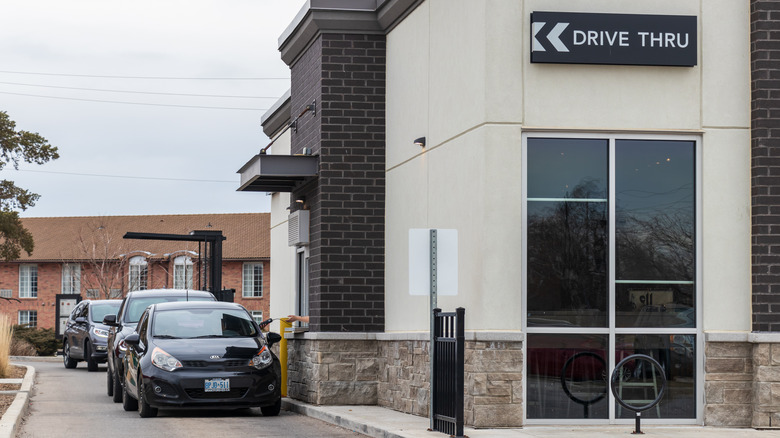Why Some Cities Decided To Ban Fast Food Drive-Thrus
A 2023 Drive Research survey found that as many as 40% of Americans purchase food through drive-thrus. Despite their popularity, some cities are now working to ban these establishments. While this might surprise or sadden some lovers of uber-quick eateries (especially now with inventions like drive-thru AI voices), these businesses really do come with their fair share of downsides.
The main problem with drive-thrus is their long lines, which spill out of the parking lots and onto busy roads, creating enormous traffic problems and danger for all. As professor of urban and regional planning Eric Dumbaugh shared with CNN, these establishments are often placed intentionally on busy roads with high traffic to attract as many customers as possible. This might be good for business, but it's terrible for safety, and personal injury claims from those harmed at drive-thrus have skyrocketed.
Additionally, fast food establishments are wreaking havoc on our carbon footprints because they encourage pedestrians to use cars in lieu of walking, ride shares, or public transport. As David Dixon, urban places fellow at Stantec, shared with CNN, this preference for auto travel and fast dining also takes away community spaces. They encourage people to eat on the go rather than interact with others, which further decreases walkability and promotes an isolated, auto-centric lifestyle. "Drive-thrus don't "support any of the life and vitality and amenities that suggest people might want to come live, work or play in a neighborhood," he said.
What cities are doing about their drive-thru dilemmas
As if this weren't enough, drive-thrus also take space and business away from local restaurants and other businesses. Over time, this can damage a local city's livability as it turns from a unique destination into a place of congested roads and an overabundance of fast food options. Finally, drive-thrus are a real detriment to public health too, as most fast food menus are chock-full of harmful processed ingredients, sugars, and fats.
These combined negative effects have forced some cities to pass laws to halt the building of new drive-thru establishments. For example, in cities like Minnesota and Long Beach, politicians have passed laws prohibiting or stalling the construction of new fast food joints. And in 2023, Atlanta banned drive-thrus near its BeltLine.
While we won't always pass up a trip to Chick-fil-A or Bojangles on a road trip or when we're on the hunt for the cheapest food around, these establishments, like any other, are best enjoyed in moderation. To build healthier, safer, and friendlier cities, it might be best to keep the availability of drive-thru spaces to a minimum. Or at the very least, build them away from busy roads to prioritize citizen safety over business.

